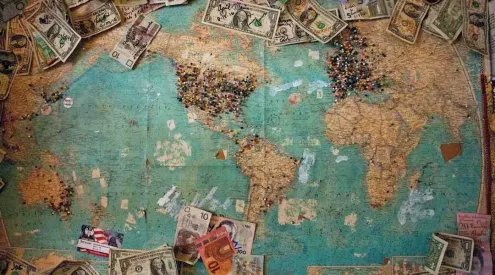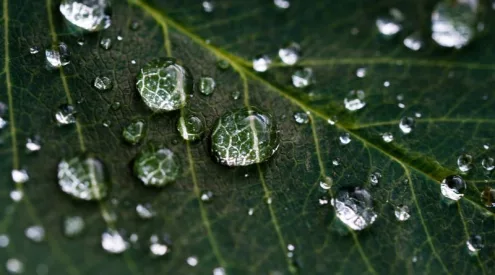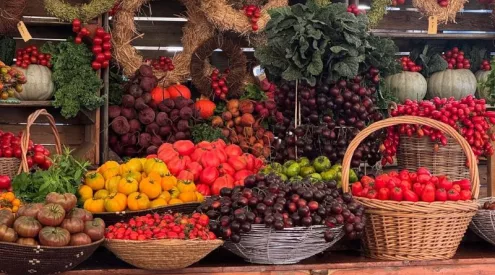World Environment Day is here again and this year’s theme is ‘biodiversity – a concern that is both urgent and existential’, emphasising the need for people to put time aside to care for nature and the planet that they call home.
World Environment Day has long been one of the most renowned days for environmental action. It has been celebrated every year on 5 June since 1974 and aims to engage governments, celebrities, businesses and citizens to focus their efforts on a pressing environmental issue.
The theme of this year’s World Environment Day is encouraging people everywhere to keep the world’s most pressing environmental causes in mind and do what they can to make a difference.
According to the official website, nature is sending us a message this year and it is time for the people of the world to respond.
Read: Jane Goodall’s warning for humanity
Among other things, World Environment Day is a global platform that aims to inspire positive change and bring together a community of like-minded individuals, raising awareness for the way we as humans consume and how we could do things in a healthier way for the Earth.
Each year a host is chosen, this year the host is Colombia in partnership with Germany.
How to be the change
One of the best and easiest ways to support the World Environment Day movement is to be the change you want to see in the world and change your habits to more eco-friendly ones.
1. Go organic
From foods and clothing to home cleaning products, opting for organic alternatives is not only better for our waters (being non-toxic and therefore doing no harm when they enter our water systems), but our environment as a whole.
Organic is expensive, but even swapping out just a few items in favour of their organic counterparts can make a positive change.
2. Reduce, reuse, recycle
Choose recyclable or compostable items over plastic ones.
Instead of a plastic toothbrush, use a bamboo one, and instead of a sponge or cloth made from synthetic material opt for a recycled alternative or eco-friendly option.
As you become more comfortable with alternatives you can slowly phase out all non-reusables, and say goodbye to plastic bags and straws.
Try using more glass containers and buying more secondhand items.
Also Read: An easy guide to recycling
3. Shop sustainably
Change your shopping habits and buy from zero waste or plastic-free establishments. This can sometimes be pricier but even the smallest change goes a long way.
4. Get EcoBrick Wise
A clever way to up cycle your non-recyclable plastics is through EcoBricks.
All you need to make an EcoBrick is a 2L bottle, a wooden spoon and non-recyclable/non-biodegradable plastic.
Fill your plastic bottle until it is ‘unsqueezable’ and as brick-like as possible and then drop it off at a collection point.
EcoBricks are used to build classrooms, homes, sustainable parks and structures. For more information about EcoBricks, what products are considered non-recyclable and for drop-off points across South Africa, read here.
5. Swap out that coffee cup
If you don’t have a reusable coffee cup, get your hands on one now. Possibly one of the easiest ways to live a more eco-friendly life, especially if you’re a coffee addict, is to use a reusable coffee cup.
Plastic coffee cups contribute significantly to the plastic pollution problem around the world, so dump that habit.
6. ‘Bee’ food packaging-conscious
Be more conscious of what you use to package your leftovers or pack your lunch for the day.
Easy alternatives to cling wrap include airtight containers, bees wax sandwich wraps or hemp dish covers for any leftovers you want to keep fresh.
7. Start composting
Start your very own compost heap in your garden or even in a little compost tin on your balcony or in your kitchen.
You can even take this tip a step further by using vegetable cut-offs to make vegetable stock and then throwing the cooked vegetable from the stock mix in your compost heap.
8. Give up on gum
Sorry, chewing gum lovers; most chewing gum brands are made of a synthetic, rubbery product called polyisobutylene that is mixed with plasticisers and materials to make the mixture chewable but also non-biodegradable.
When thrown on the ground, chewing gum can get stuck to many small animals such as birds. These small animals then struggle to remove the sticky plastic which can result in suffocation, starvation or rotting of their feet if stepped in. Not to mention the plastic packaging chewing gum comes in.
Giving up this habit can go a long way to making a change for the better when it comes to our environmental conditions.
9. Eat less meat
This may be a touchy one for those out there who love themselves a heaping helping of meat, but eating less meat and having meat-free days even once a week goes a long way.
Did you know roughly 3 000 litres of water goes into making a 200g beef patty? Vegetarian or vegan burgers takes 75% less water to produce.
Simply swapping your beef burger for a vegetarian one once a week can save all this water.
Check out how you can get more involved in the eco-friendly movement on the World Environment Day website here.
Picture: Unsplash

















